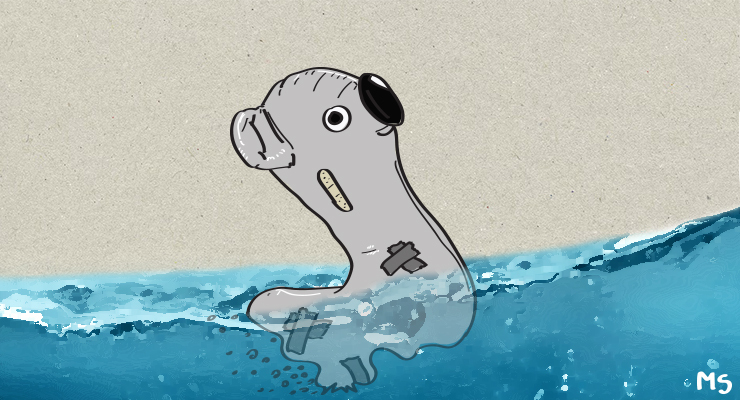
The Consumer Price Index (CPI) rose 1.8% in the June quarter, slightly under market forecasts, but still lifting annual inflation to 6.1%. The June result was the second highest since the introduction of the GST, but lower than the March result of 2.1%.
Underlying measures, which the Reserve Bank watches closely, also rose: the trimmed mean reached 4.9%, while the weighted median reached 4.2%.
The slightly lower result will complicate the RBA’s thinking on its next rate rise at Tuesday’s board meeting, and will raise the possibility that a 0.25% increase is required rather than another 0.5% slug. Inflation here has a six in front of it compared to an eight or nine in the US and the UK, and may have peaked, though energy costs such as higher electricity and gas prices are yet to feed through into household bills — that is happening in the current quarter — and continuing bad weather will keep food prices higher. Food prices were a contributor to the result — rising 2% in the June quarter — but the big contributors were housing costs (5.6%) and petrol (4.2%).
Higher interest rates will have an effect on housing demand — that’s already happening — but will do nothing about petrol prices, nor will they fix the weather to deliver more and better fresh food.
In an overnight update of its April World Economic Outlook on Monday, the International Monetary Fund (IMF) upgraded its inflation forecasts while slashing its global growth estimates this year and next.
The IMF reduced its global forecasts to 3.2% for this year from 3.6% in April and lowered its 2023 forecast to 2.9%, down 0.7% from the April estimate. The specific numbers (the IMF doesn’t have a stellar forecasting reputation) matter less than the direction. And this year could see another downward lurch if Russia cuts off gas to Europe — growth could tumble to 2.6%. And that would also see 2023’s outlook slashed even deeper — to just 2% growth, which the IMF would classify as a recession. That level of growth has happened just five times since 1970, according to the IMF.
But inflation is not heading downward: the IMF raised its forecasts for this year and next by nearly a full percentage point to 8.3% and 5.7%. It now expects inflation this year in advanced economies to reach 6.6%, up from 5.7% in the April forecasts. Inflation in emerging markets and developing countries is now expected to reach 9.5% in 2022, up from 8.7% in April.
Worse, it expects inflation to remain elevated for longer than previously anticipated. And that will mean central banks will have to maintain tight monetary policy settings well into 2024, when many would be looking to loosen them in a year’s time.
Pierre-Olivier Gourinchas, the IMF’s top economist, warned it will be an environment that tests the “mettle” of central banks to continue raising interest rates even if economies are slowing: “It’s easy to cool off the economy when the economy is running hot. It’s much harder to reduce inflation when the economy is close to a recession.”









I still don’t understand the point of raising interest rates to impact inflation that has no connection with the interest rates in the first place. It’s such a blunt instrument, likely to most affect those that can least afford it. Surely the Reserve Bank should catch its breath and see the current impact of the new rates, before it goes too far and sends a large proportion of mortgage holders to the wall? A mass of mortgagee sales is not in the economy’s interest.
All prediction is unreliable. So why do we pay so much attention to it? Because the RBA engages in prediction and futilely attempts to change the future on the basis of prediction that is more often wrong than right. Time some of these wonks heeded Taleb.
We are told the next lot of figures will show higher inflation because of the recent energy cost rise.
In the predictions we are not having acknowledged the reduction in fuel costs that has started, and the food supply that will be improving through winter (provided price gouging does not continue the prices will come down)
(I hope the ‘cost of housing’ does not include house loan repayments)
The RBA need to be careful now to use a more nuanced approach to Interest Rate hikes. Their interest rate hikes to ‘solve’ a supply problem will already come back to bite them.
It will be interesting, tomorrow, to hear what our neoliberal orientated Treasurer has to say about solutions he is planning for the current economic situation.
So far he has been in lock step with his neoliberal mentors in the RBA and Treasury.
If we end with a recession/stagflation it will not be the previous government at fault.
Why does the government not pass an inflation tax that can be raised or lowered based on the need? This would impact a wider range of people and secondly all of Australia would benefit rather than bank profits.
I agree. Hit profits to take the steam out of inflation and build public finances for public investment at the same time. It is Monetism using a tax lever not an interest rate lever. It is simple except being a tax the elite wont entertain it.
I reckon there is a nobel prize there for some PHD student.
PREdiction, like FOREcasts, are about the future – economists are rarely even accurate at explaining why their past prognostications were wrong. The constant claim of prophecy could benefit from considering 1Corinthians 13:12 – as through a glass darkly.
is Glenn a ghost? No picture?